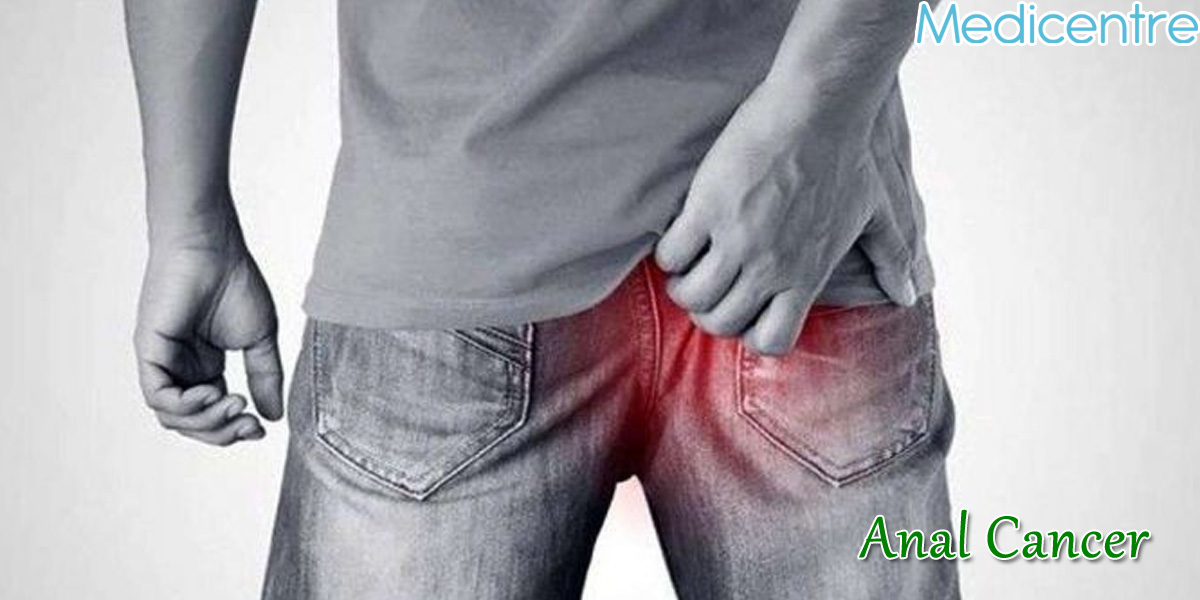Anal Cancer
Anal cancer is a cancerous condition where malignant cells develop in the anus. It is a very rare type of cancer. The anus is where the stool leaves your body which is made up of outer layers of skin and the end of your large intestine. The anal canal is part of the anus between the rectum and the canal opening. The prognosis is poor due to chances of metastasis to a distant part of the body through lymph nodes. It is most commonly diagnosed in men over 60 years of age and in women over 50 years.

CAUSES:
- Anal intercourse
- Infection with human papillomavirus
- Immunocompromised patients such as HIV
RISK FACTORS:
- Multiple sexual partners
- Anal intercourse
- Older than 50 years
- Anal fistulas
- Redness, swelling around the anus
- Smoking
SYMPTOMS:
- Lump near the anus
- Bleeding from the anus
- Itching and discharge from the anus
- Change in bowel habits
- Pain in the area around the anus
- A feeling of fullness in the anal area
- Itchy sensation around and inside the anus
- Constipation, diarrhea and thinning of the stools
- Tender lymph nodes in the anus
DIAGNOSIS:
- Physical inspection of the anus area to check any lump or swelling by the doctor.
- Digital rectal examination
- Anoscopy
- Proctoscopy
- Ultrasound or endo-anal
- Biopsy
TREATMENT:
- It will depend on the size, shape, and stage of cancer , location of the tumor and if it has spread to other parts or not.
- External beam radiotherapy is quite effective to kill cancer cells or to prevent their growth by using high energy X-rays.
- Chemotherapy is used to stop the growth of cancer cells by either injected into a vein or orally and enter systemically to reach the bloodstream
- Surgery includes local resection when the cancer is small and not spread. Abdominoperineal resection has used the rectum, anus, and part of the sigmoid colon are removed with the lymph node involved for the tumors which have spread to other parts of the body
- Radiosensitizers are the drugs that make tumor cells more sensitive to radiation therapy